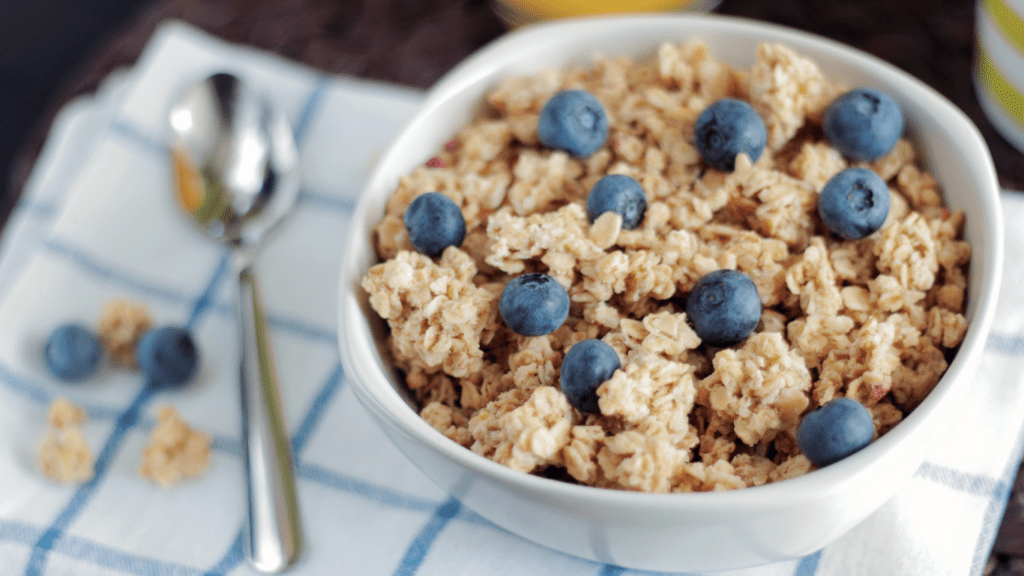Importance of Pre-Game Nutrition
Pre-game nutrition plays a crucial role in athletic performance. It determines energy levels, affects endurance, and influences focus. Consuming the right nutrients keeps athletes energized and mentally sharp during competitions. Carbohydrates offer quick energy, while proteins support muscle repair. Fats provide sustained energy, aiding in prolonged activities.
Hydration is equally vital. Dehydration leads to fatigue and impairs performance. Drink fluids like water or sports drinks to maintain optimal hydration levels. Timing of meals also matters. Eating 3-4 hours before the game allows proper digestion, reducing the risk of discomfort and ensuring nutrients are available when needed.
In competitions, athletes often face demanding physical stress. Pre-game nutrition prepares the body to handle this stress more effectively. Overall, making strategic food choices enhances performance and maximizes potential on game day.
Timing Your Pre-Game Meal
When it comes to pre-game nutrition, timing plays a crucial role in optimizing performance. Consuming the right nutrients at the right time fuels your body effectively for competition.
When to Eat
Eating your pre-game meal 3-4 hours before competition allows for optimal digestion and energy availability. This timeframe ensures that the body can convert food into usable energy without risking discomfort or sluggishness during performance.
Amount to Consume
Balancing the quantity of food consumed before a game is critical for maintaining energy levels. A meal consisting of 600-800 calories provides sufficient energy without being overly filling. This meal should integrate carbohydrates for quick energy, proteins for muscle support, and healthy fats for endurance.
Best Foods for Carbohydrate Loading

Carbohydrate loading is essential for maximizing energy storage before competition. By focusing on nutrient-rich sources, athletes can enhance performance and endurance.
Whole Grains
Whole grains like:
- brown rice
- oats
- quinoa
provide complex carbohydrates. These grains release energy steadily, keeping me fueled longer during competition. Brown rice serves as a versatile base for meals, while oats can be part of a pre-game breakfast. Quinoa is high in protein and acts as a complete source of amino acids. Incorporating these grains ensures a supply of vitamins, minerals, and fiber, supporting both energy levels and digestion.
Fruits and Vegetables
Fruits and vegetables are excellent sources of quick-digesting carbohydrates. Bananas, for instance, offer potassium and fast-absorbing carbs ideal for pre-game snacks.
Oranges provide vitamin C and hydration, which can help with muscle function and recovery. Vegetables like sweet potatoes, rich in beta-carotene and fiber, maintain energy and aid digestion. Including a variety of colorful options ensures a wide range of nutrients for optimal performance.
Protein Sources for Sustained Energy
Choosing the right protein sources before a game is essential for sustained energy and muscle support. Including a balanced amount of lean meats and plant-based proteins can enhance performance and aid in recovery.
Lean Meats
- Lean meats offer a rich source of protein and essential amino acids that support muscle repair and growth.
- Chicken breast, for instance, provides a high protein content with minimal fat.
- According to USDA data, a 3-ounce serving of cooked chicken breast contains about 27 grams of protein and only 3 grams of fat.
- Turkey is another great option, offering similar benefits with a slightly lower calorie count.
- These lean meats should be cooked using methods like grilling or baking to maintain their nutritional value while avoiding added fats.
- Including a portion of lean meat in a pre-game meal helps maintain muscle function and provides energy over time.
Plant-Based Proteins
Plant-based proteins are an excellent alternative for those seeking diverse protein options. Foods like lentils, chickpeas, and quinoa not only offer protein but also contain fiber and essential nutrients. For example, one cup of cooked lentils contains around 18 grams of protein and 15 grams of fiber, according to the USDA.
Incorporating tofu is another viable choice, with a half-cup serving providing approximately 10 grams of protein. These plant foods also deliver a range of vitamins and minerals that support overall health. Balancing these plant-based proteins with other macronutrients ensures prolonged energy and improved athletic output.
Hydration Strategies
Proper hydration is crucial for athletes on game day. It impacts performance significantly, influencing endurance and concentration.
Importance of Water
Water is the essential fluid for maintaining optimal physical performance. Inadequate hydration leads to dehydration, causing fatigue and impairing athletic output. Starting hydration early helps to ensure that the body’s fluid stores are optimal. Drinking 17-20 fluid ounces of water approximately 2-3 hours before the competition prepares the body adequately.
Electrolyte Replacement
Electrolytes are vital minerals lost in sweat during vigorous activities. These include sodium, potassium, and magnesium, which help maintain fluid balance and muscle function. Athletes can replenish these essential minerals with sports drinks or electrolyte tablets, especially during prolonged activities. Consuming fluids that combine water and electrolytes supports energy and prevents cramps, maintaining performance throughout the competition.
Foods to Avoid Before Competition
For peak athletic performance, choosing the right foods is essential. Certain foods can hinder your energy and focus, impacting your game day performance.
High-Fat Foods
Avoid high-fat foods before a competition because they slow digestion and can cause discomfort. Fatty meats like bacon or sausages overload the digestive system and may leave you feeling sluggish. Fried foods, such as French fries, introduce excessive fats that delay energy availability. Opt for lean proteins and minimize intake of fried or processed items to maintain optimal performance.
Sugary Snacks and Drinks
Sugary snacks and drinks cause rapid spikes in blood sugar followed by crashes, which affect energy levels and concentration. Candy bars or sugary sodas may initially seem energizing but lead to fatigue and reduced performance. Instead of empty calories, choose complex carbohydrates from fruits or whole grains for sustained energy release during competition.

 Milla Collings plays a pivotal role at Make Athlete Action, where her expertise in sports nutrition and conditioning has been invaluable in crafting content that resonates with athletes and fitness enthusiasts alike. With a deep understanding of how nutrition impacts performance, Milla has contributed extensively to the platform’s nutrition and conditioning segments, ensuring that athletes receive practical, science-backed advice. Her commitment to excellence has helped elevate Make Athlete Action as a trusted source of knowledge for anyone looking to optimize their diet and achieve their peak performance.
Milla Collings plays a pivotal role at Make Athlete Action, where her expertise in sports nutrition and conditioning has been invaluable in crafting content that resonates with athletes and fitness enthusiasts alike. With a deep understanding of how nutrition impacts performance, Milla has contributed extensively to the platform’s nutrition and conditioning segments, ensuring that athletes receive practical, science-backed advice. Her commitment to excellence has helped elevate Make Athlete Action as a trusted source of knowledge for anyone looking to optimize their diet and achieve their peak performance.